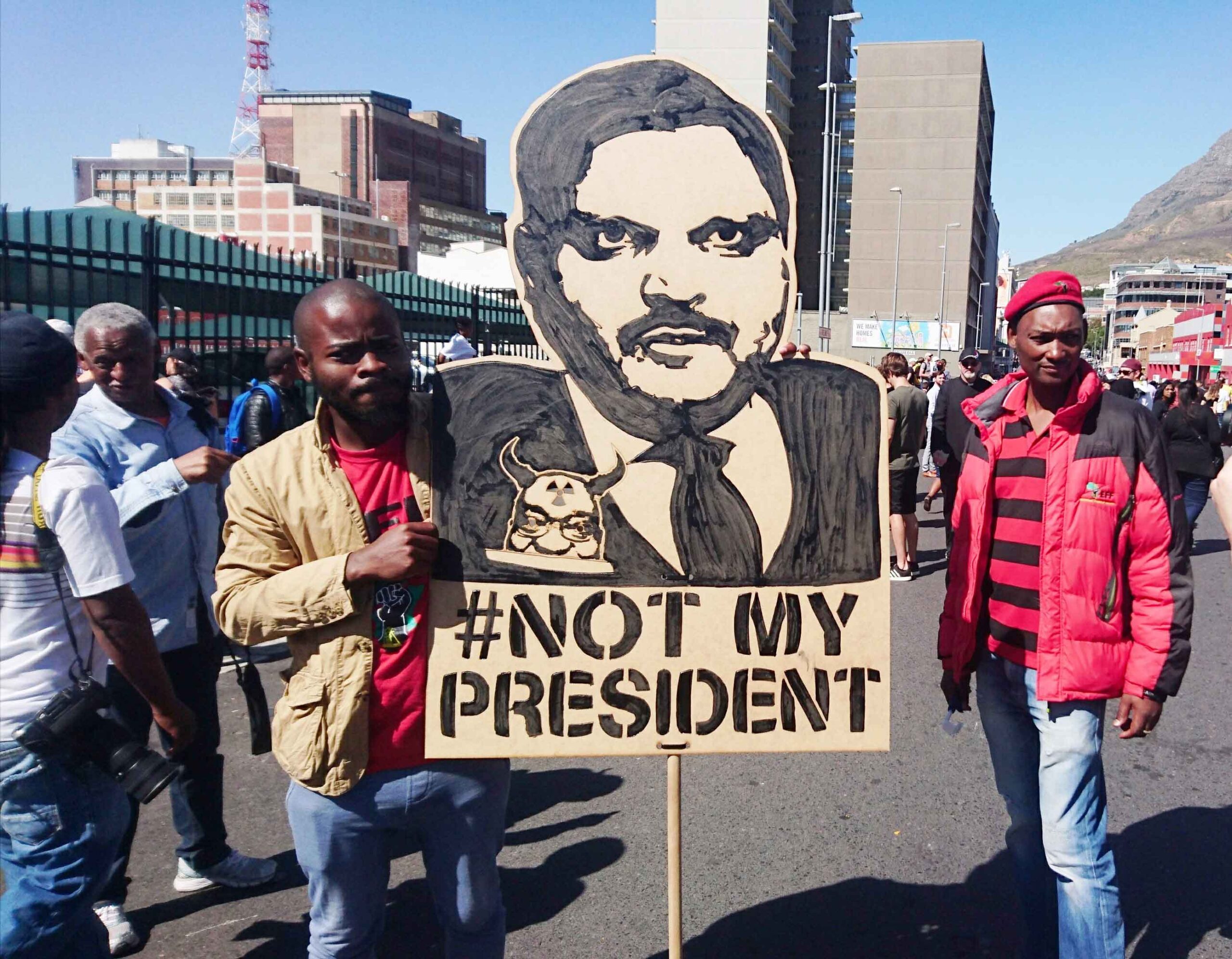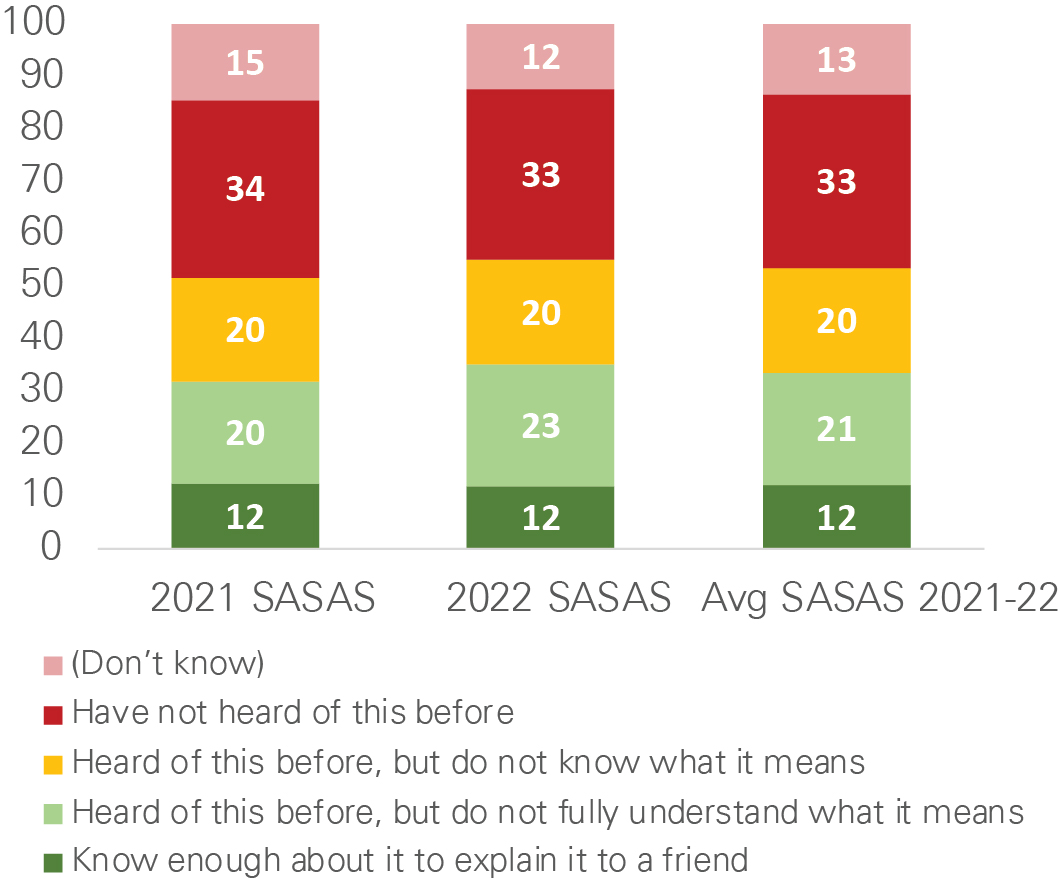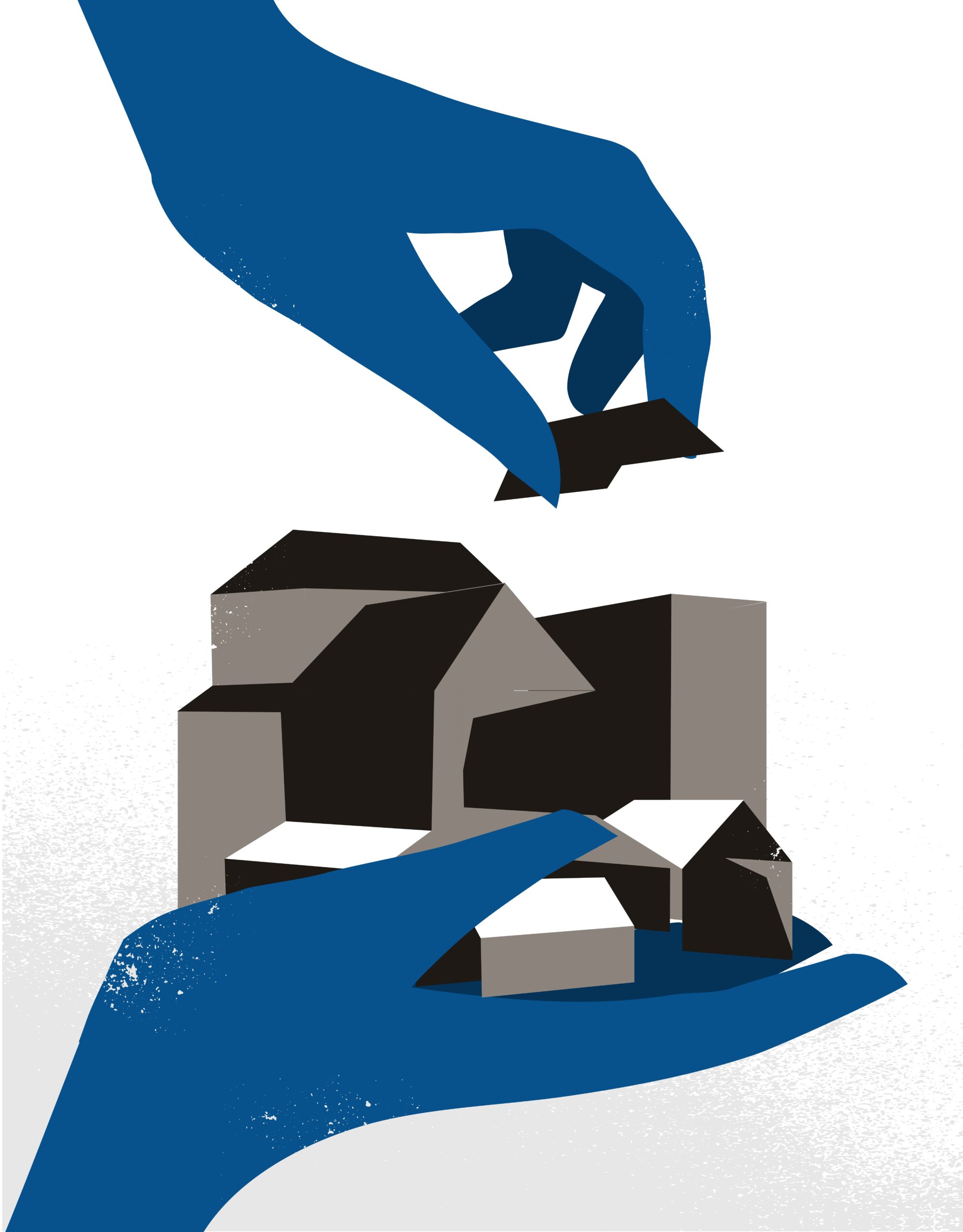In June, the HSRC hosted a colloquium on the Zondo Commission’s state capture findings and implications for the future of democracy in South Africa, as an outcome of the Future of Democracy project. Much of the media coverage after the event focused on Chief Justice Raymond Zondo’s controversial claim that Parliament would not be able to stop another attempt at state capture, due to too little change in the status quo. Antoinette Oosthuizen spoke with Narnia Bohler-Muller about the importance of reflecting on state capture and the findings of the Zondo Commission in a public arena outside of the courts. They also discussed a worrying finding of an HSRC survey that many South Africans are unaware of the Zondo Commission’s work, despite daily news reports and live television screenings of proceedings.
In June 2022, the Zondo Commission filed the final part of its report on state capture in South Africa. The findings describe multiple incidents of state capture that took place in South African government departments and state-owned enterprises during the former presidency of Jacob Zuma. Released in four parts, the report outlines extensive corruption, for example, in parastatals like the South African Revenue Service (Sars) and South African Airways (SAA), at the state-owned companies Denel, Eskom and Transnet, and involving the privately owned state contractor BOSASA, as well as the attempted capture of the National Treasury.
Chaired by then Deputy Chief Justice Raymond Zondo and held from January 2018 to June 2022, the Commission heard testimony from more than 300 witnesses over 429 days of public hearings.
Support from the HSRC
The HSRC, through its Future of Democracy project, has been helping to synthesise the outputs of the Zondo Commission, and is now working with the CSIR to archive the data generated by the hearings.
In June 2023 the HSRC hosted a colloquium titled ‘Post Zondo: The Future of Democracy’ at the CSIR International Convention Centre in Pretoria. The aim was to discuss the Commission’s findings but also to gauge public appetite for democracy as a form of governance.
The colloquium was a high-level, in-person event with presentations from stakeholders who included Minister of Higher Education, Science and Technology, Blade Nzimande, former Constitutional Court judges Johann Kriegler and Richard Goldstone, members of academia, and civil society. The proceedings were filmed and broadcast live on YouTube, and it was attended by the media, mainly to cover Zondo’s address.
Speaking out and ruffling feathers
During his keynote speech, Zondo commented that Parliament had failed to take steps to expose and stop state capture timeously, causing South Africa to lose over R58 billion:
… if another group were to do the same, Parliament would still not be able to stop it. That is simply because I’ve seen nothing that has changed. The question that arises then is: If Parliament won’t be able to protect the interests of the people, if there are attempts for another state capture, who will protect the people?
He went on to suggest ways to prevent a recurrence, including giving people more power through electoral reforms, and establishing a standing anti-corruption commission to monitor the government.
Later that day, Parliament responded with a statement expressing “shock and strong objection” to Zondo’s remarks. The press release stated that Parliament should be given the necessary space to fulfil its obligations, and that it had “taken decisive steps to address” the recommendations of the Zondo Commission. These steps included developing rules and guidelines to enhance its oversight processes and conducting research to “explore international best practices”. To monitor progress on implementation of these initiatives, Parliament’s Rules Committee “had decided that quarterly reports on the progress of these initiatives [had to be] tabled”.
A week after the colloquium, Business Day reported on a meeting between Parliament’s presiding officers and Zondo, described as “constructive” by National Assembly Speaker Nosiviwe Mapisa-Nqakula and National Council of Provinces Chairperson Amos Masondo. The National Assembly stated that it was implementing 19 recommendations, 11 of which had already been completed. Parliament had started recruiting for various advisory roles, legal and otherwise, to strengthen its capacity.

EFF members carry a protest placard of Atul Gupta during protests to remove former President Jacob Zuma in Cape Town. Photo: Discott, Wikimedia Commons
Spotlight on the HSRC
While the controversy may have dominated media coverage of the event, it also drew attention to the HSRC’s impactful work.
“If Parliament hadn’t released a statement the same day, I’m not sure it would have been such a big story,” said Prof. Narnia Bohler-Muller, divisional executive of the HSRC’s Developmental, Capable and Ethical State division.
“We wanted the colloquium to be high level and illustrate the importance of the work that we’re doing for the Zondo Commission, and have since been contacted by universities all over the country and are being invited to events to share our research.”
SASAS awareness
However, while academics are readying themselves to delve into the findings, public ignorance about the Zondo Commission is shocking. HSRC researchers found that 33% of those who participated in the 2022 South African Social Attitudes Survey had never heard of the Zondo Commission before. This was despite proceedings having been live-streamed on television and covered in daily media reports. Another 12% of participants were “unsure”, 50% had heard of it but did not know what it meant, and only 12% said they knew enough about it to explain it to a friend (Figure 1).
Figure 1. Responses to the question: ‘How much would you say you know about the Zondo Commission and its work?’

Source: HSRC South African Social Attitudes Survey (SASAS) 2021–2022
“It is worrying if people don’t know what is happening – and this is something that we want to research. If the citizenry does not know about such important events, then they’re not going to be able to make informed decisions, including who to vote for. We have seen this lack of awareness in other areas measured by SASAS,” explained Bohler-Muller.
Those who do know about the Commission will want to see action taken against those pinpointed by the reports.
“If by May of next year not a finger has been raised to bring people to book based on the evidence in front of us, people could feel disillusioned. I think there is already a sense of disillusionment. Citizens will lose patience with democracy – the consequences of which could be possible unrest, and low voter turnout in the 2024 election,” Bohler-Muller added.
Archiving the Zondo data
The HSRC and CSIR are working on a massive archival project to preserve the data from the Zondo Commission for future use by all.
Over 64 000 records have been produced, for example, affidavits, evidence transcripts, statements, letters of request, exhibits, government legal framework publications, and applications for cross-examination, postponement, and recusals.
Each record needs to be individually examined and organised into a system. The team is currently digitally indexing the records, identifying duplicates, linking different formats of the same subject matter, and establishing a physical records centre.
Understanding state capture
Inspired by the colloquium, the HSRC researchers are also working on a book about the players who fought or facilitated state capture in the country.
“We want to do a deeper analysis of the processes, people and institutions involved in facilitating or allowing the hollowing out of the state from the inside and the outside. People and institutions used certain mechanisms to do that, and they tended to work together. Those who fought or became whistleblowers risked their jobs or faced crooked boards and executives at institutions. To prevent a recurrence, we need to analyse how the system was manipulated to the point of near collapse.”
It was more than stealing
“The Zonda Commission touched on the health of our democracy, how people are held accountable, and how transparent the state is. State capture was not just about stealing money, but about hollowing out and attempting to collapse the State itself.
“South Africa has been shown to be vulnerable, which means there is a possibility that things may go back to where they were, especially since many of the players are still in government. That’s why we must also trace whether the Zondo recommendations are being implemented or not. If we don’t see action, or if we are only seeing action from small players, the democratic project will be jeopardised. Therefore, we must recognise trends and patterns, and draw attention to them, while also encouraging and protecting whistleblowers.”
Two new HSRC policy briefs based on presentations made by researchers at the colloquium have been published. You can find them here and here.
Watch Zondo’s comments at the colloquium here.
Contact:
Prof. Narnia Bohler-Muller, divisional executive of the HSRC’s Developmental, Capable and Ethical State division


